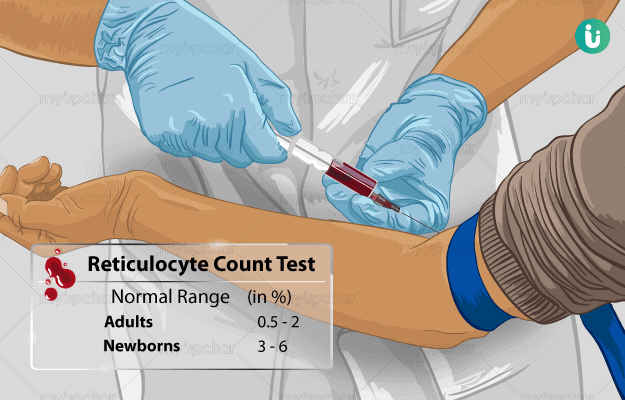What is a Reticulocyte Count test?
Reticulocytes are nothing but immature red blood cells (RBCs) in their developmental phase. They are produced in the bone marrow and are released into the bloodstream where they remain for about two days before maturing into RBCs. RBCs are responsible for carrying oxygen to and carbon dioxide from various tissues of the body.
A reticulocyte count test measures the number of reticulocytes in blood. It is primarily done to check the ability of bone marrow to produce RBCs.






























